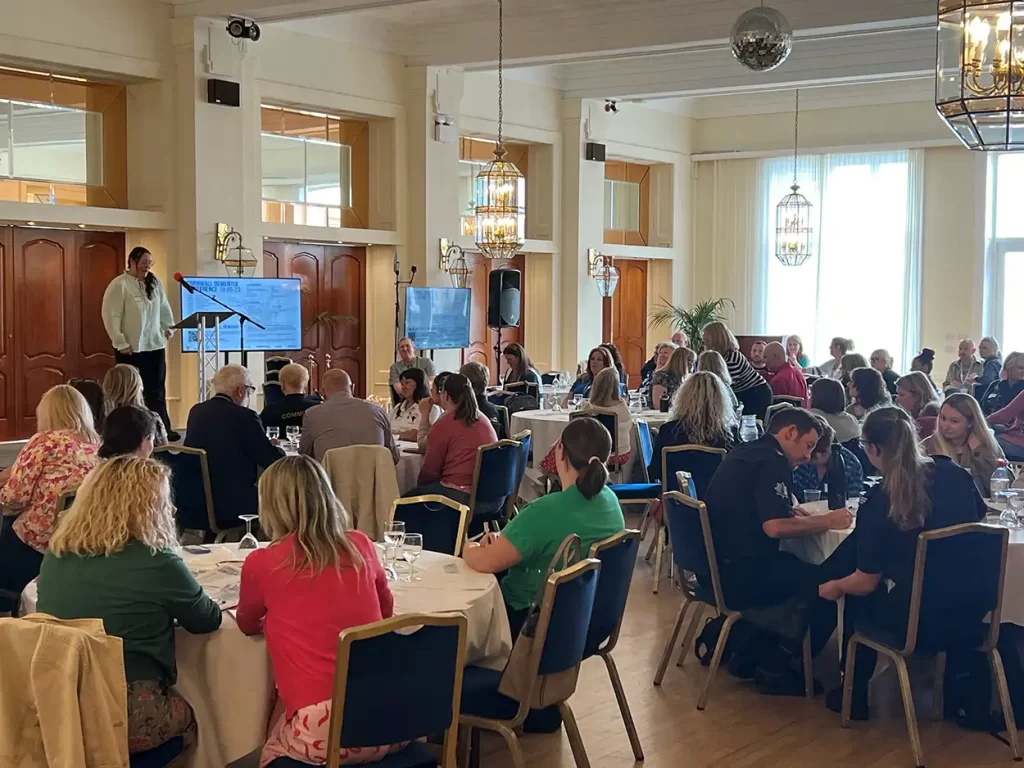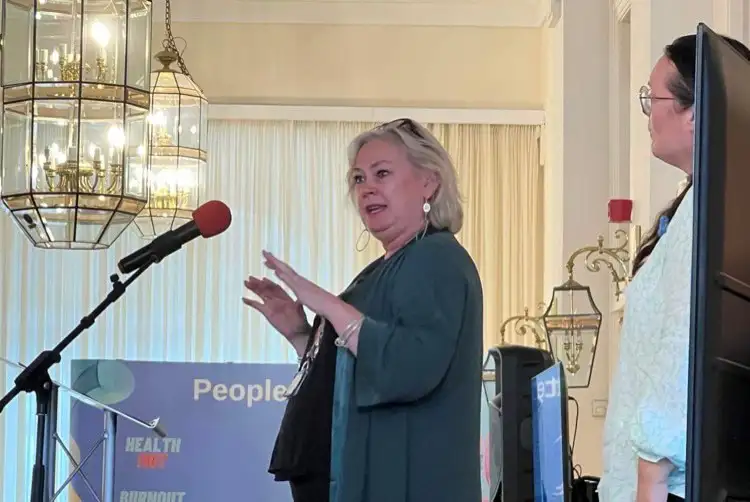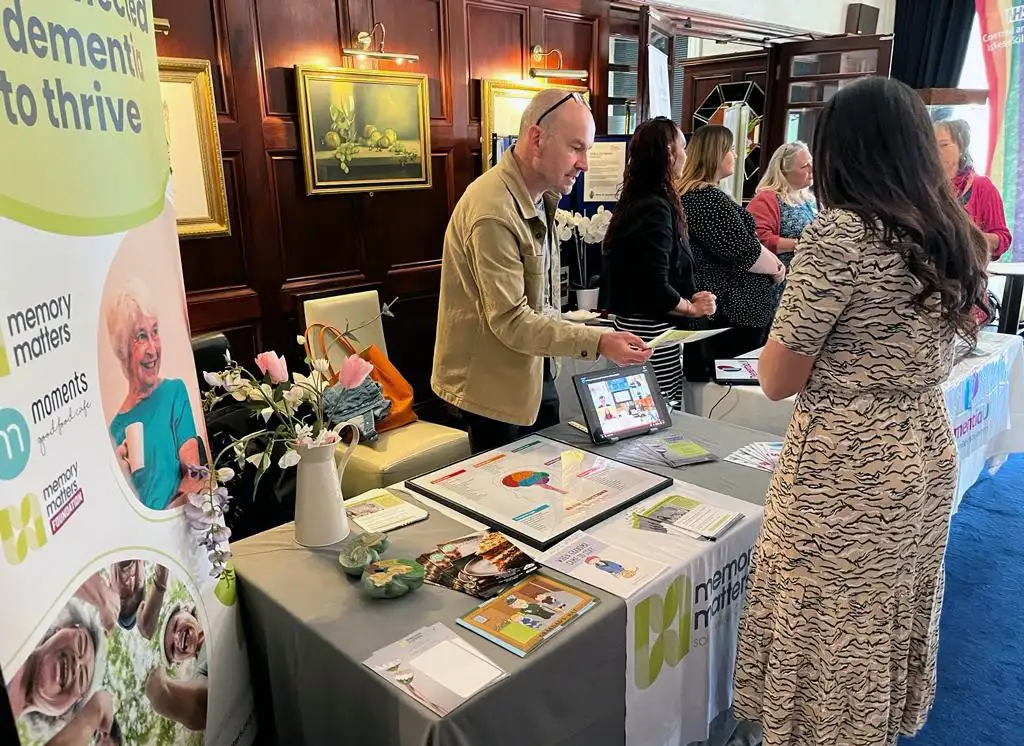Cornwall Dementia Conference makes sure dementia is “everyone’s business”
The 2023 national Dementia Action Week (15 – 21 May) focussed on making sure people receive a timely diagnosis.
Around 5,000 people have a diagnosis of dementia across Cornwall and the Isles of Scilly, although more than twice that number may be affected, living with symptoms but reluctant to seek a diagnosis or help.
Over 900,000 people in the UK are estimated to be living with dementia, and this year’s Dementia Action Week focussed on making sure people receive a timely diagnosis.

Recognising that someone is living with dementia early is really important and means the person and their carer can get the right support to help them live with the condition better.
Prevention is key for everyone too, with stopping smoking, avoiding excess alcohol, treating high blood pressure, and eating a healthy balanced diet helping all helping to reduce risks.
Dr Allison Hibbert, GP specialising in older adults, the Cornwall and the Isles of Scilly Integrated Care System’s lead on dementia and Chair of the Dementia Partnership Board, said: “I would urge anyone who is worried about their symptoms to seek advice from their GP surgery or a local Alzheimer’s Society service. A diagnosis can be the key to unlocking support for people and their carers.
“While at the moment, there is no cure, we can offer support and treatment which reduce the symptoms, improve quality of life and help people and their carers avoid a crisis”.

Cornwall Dementia Conference
This week’s awareness activities culminated on Friday 19 May, when Newquay’s Atlantic Hotel hosted the county’s second dementia conference. The event will highlight the range of care and support available including the different ways technology can help.
Guest speakers included Professor Banerjee from the University of Plymouth, who talked about the steps we can take to prevent dementia, and the University of Worcester’s Teresa Atkinson, who talked about how to make buildings and environments dementia friendly.
Allison continued: “Many people are unaware of the things they can do to reduce their risk of developing dementia. These include preventing and treating high blood pressure and diabetes. Stopping smoking. Keeping active and maintaining a healthy weight, avoiding excess alcohol, a healthy balanced diet with less processed food and including foods such as leafy greens and colourful vegetables, lentils, fish, and olive oil. Getting a good night’s sleep is important too. Keeping the brain stimulated by engaging socially, and undertaking cognitively stimulating activities such as hobbies, music, puzzles also help”.
What happened at the conference?
GPs, NHS and care home staff, representatives from the voluntary sector, and people with dementia and their carers attended this year’s conference.
A packed agenda of interactive workshops on memory cafés, book clubs, music therapy and the Cascade theatre took place in the morning.
The afternoon’s workshops focussed on how technology can help with sessions on the use of apps virtual reality, an interactive projector and RITA. RITA stands for Reminiscence/Rehabilitation and Interactive Therapy Activities and is a touch screen which provides digital therapy to help people recall and share events using music, historic news reports, games, or films.

Useful links
- Friday’s sell-out was streamed live, courtesy of CHAOS TV. Re-watch the event: https://boxcast.tv/view/dementia-care-conference-2023-y26gannx7z4uqdygqevv
- Kernow Health CIC also broadcast a series of podcasts to mark Dementia Action Week, covering topics like dementia prevention.
- For advice about dementia and to find local support services, visit the NHS Cornwall and Isles of Scilly website.

